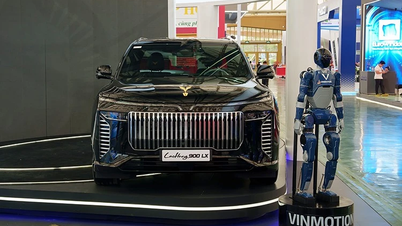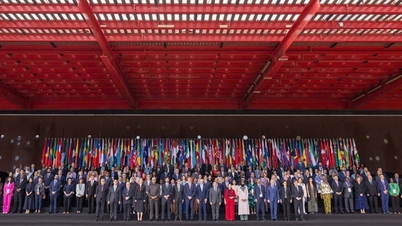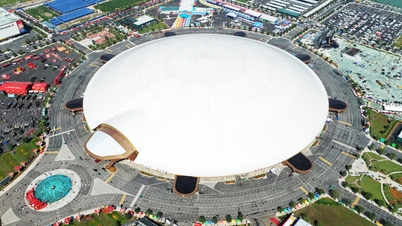France and Britain, Europe's two nuclear-armed powers, have agreed to pool their atomic arsenals to counter major threats to the continent.
The decision was made as part of a series of defense agreements signed by French President Emmanuel Macron and British Prime Minister Keir Starmer on July 17.

French President Emmanuel Macron and British Prime Minister Keir Starmer during a visit on July 10. Photo: BBC
While nuclear coordination will be enhanced under the deal, as will nuclear research cooperation between France and Britain, the document makes clear that nuclear arsenals will not be fully integrated.
“Both countries’ respective deterrents are independent but can be coordinated,” the British government said in a press release. The idea is to achieve political , not operational, integration between the two nuclear forces.
The move comes amid a rapidly changing security environment that has European leaders scrambling to rearm and reduce their dependence on Washington as a security guarantor.
As Russia escalates its military campaign against Ukraine, a conflict President Vladimir Putin has described domestically as a struggle against NATO, and as defense leaders in Washington turn their attention to the Pacific , there has been talk here of “European deterrence” for some time.

Combining the nuclear deterrence capabilities of two European powers based on political integration. Illustration photo: ChatGPT
The latest Franco-British move is the closest the continent has come to such a strategic capability, at least in theory. While the exact text of the new agreement has not been released at the time of writing, the UK government says it stipulates that “no serious threat to Europe will not result in a response from both countries.”
The French president's visit to London also spurred a series of other military agreements, including joint development of a new cruise missile to replace the Storm Shadow/SCALP, joint development of advanced anti-drone weapons, and joint development of the next generation of beyond-visual-range air-to-air missiles for the Royal Air Force.
The meeting also included an update to the Lancaster House treaties, a defense framework between London and Paris that has been in place since 2010. The new version will add the goal of integrating combat forces into new domains such as cyberspace and cybersecurity.
Part of the defense agreements also includes an industrial component, with the governments aiming for an “Entente Industrielle” that could significantly boost the production of military equipment by both countries.
The threatening security environment facing Europe has prompted a significant shift in thinking among leaders across the continent. Macron, in particular, has been notable for pushing for deeper European integration, albeit largely under French leadership. He has repeatedly proposed the idea of extending France’s “nuclear umbrella” to the rest of the continent since Russia’s invasion of Ukraine, but with mixed results.
For its part, Britain has found new warmth from European capitals since the more pro-European Labour Party came to power, and given its active role in the “Alliance of the Willing,” a loosely structured pro-Ukrainian group.
Source: https://khoahocdoisong.vn/phap-anh-hop-luc-xay-dung-chiec-o-hat-nhan-chau-au-post1555692.html


![[Photo] The 1st Congress of Phu Tho Provincial Party Committee, term 2025-2030](https://vphoto.vietnam.vn/thumb/1200x675/vietnam/resource/IMAGE/2025/9/30/1507da06216649bba8a1ce6251816820)

![[Photo] General Secretary To Lam receives US Ambassador to Vietnam Marc Knapper](https://vphoto.vietnam.vn/thumb/1200x675/vietnam/resource/IMAGE/2025/9/29/c8fd0761aa184da7814aee57d87c49b3)

![[Photo] General Secretary To Lam, Secretary of the Central Military Commission attends the 12th Party Congress of the Army](https://vphoto.vietnam.vn/thumb/1200x675/vietnam/resource/IMAGE/2025/9/30/9b63aaa37ddb472ead84e3870a8ae825)
![[Photo] Solemn opening of the 12th Military Party Congress for the 2025-2030 term](https://vphoto.vietnam.vn/thumb/1200x675/vietnam/resource/IMAGE/2025/9/30/2cd383b3130d41a1a4b5ace0d5eb989d)


















![[Photo] General Secretary To Lam attends the ceremony to celebrate the 80th anniversary of the post and telecommunications sector and the 66th anniversary of the science and technology sector.](https://vphoto.vietnam.vn/thumb/1200x675/vietnam/resource/IMAGE/2025/9/29/8e86b39b8fe44121a2b14a031f4cef46)

































































Comment (0)